Improving SEO for Your Website
Improving SEO for your website is an ongoing process that requires attention to various factors. Here are some key strategies and best practices to help you get better SEO for your website:
Keyword Research: Perform thorough keyword research to identify relevant keywords and phrases that your target audience uses to search for products or services similar to yours. Use tools like Google Keyword Planner or SEMrush to discover high-volume, low-competition keywords that align with your content.
On-Page Optimization: Optimize your website’s individual pages to make them more search engine friendly. Include target keywords in the page title, meta description, headings, and throughout the content naturally. Ensure your URLs are concise and descriptive. Also, optimize images by using descriptive alt tags.
High-Quality Content: Create high-quality, engaging, and valuable content that satisfies the search intent of your target audience. Focus on providing informative, well-researched, and unique content that keeps users engaged and encourages them to spend more time on your website. Incorporate relevant keywords naturally within the content.
Site Structure and Navigation: Ensure your website has a clear and intuitive site structure with logical navigation. Use a well-organized hierarchy of pages and include internal links to help search engines understand the relationships between different pages. Implement a user-friendly menu structure that enables visitors to easily navigate your site and find the information they are seeking.
Mobile Optimization: Given the increasing number of mobile users, it’s crucial to optimize your website for mobile devices. Ensure your site is responsive, meaning it adapts and displays properly across various screen sizes. Mobile optimization is a significant ranking factor for search engines and improves the user experience.
Page Loading Speed: Optimize your website for fast loading times. Users expect websites to load quickly, and search engines favor faster sites. Minimize file sizes, optimize images, leverage caching, and utilize content delivery networks (CDNs) to improve your website’s loading speed.
Technical SEO: Pay attention to technical aspects of SEO, such as XML sitemaps, robots.txt file, canonical tags, structured data markup, and schema.org implementation. Ensure proper indexing of your website by submitting your sitemap to search engines like Google Search Console and Bing Webmaster Tools.
Backlinks and Link Building: Earn high-quality backlinks from authoritative websites in your industry. Focus on natural link building through content creation, guest blogging, influencer outreach, and building relationships with relevant websites. Quality backlinks help improve your website’s authority and rankings in search engine results.
User Experience (UX): Deliver a positive user experience to visitors by creating a website that is visually appealing, easy to navigate, and loads quickly. Ensure intuitive user interfaces, clear calls to action, and an overall seamless experience that keeps users engaged and encourages them to explore further.
Regular Monitoring and Analysis: Regularly monitor your website’s performance using tools like Google Analytics and Google Search Console. Track key metrics such as organic traffic, bounce rate, average time on page, and keyword rankings. Analyze the data to identify areas for improvement and refine your SEO strategies accordingly.
Remember, SEO is an ongoing effort. Stay updated with industry trends and algorithm changes, adapt your strategies accordingly, and consistently optimize your website to maintain and improve your search engine rankings.




